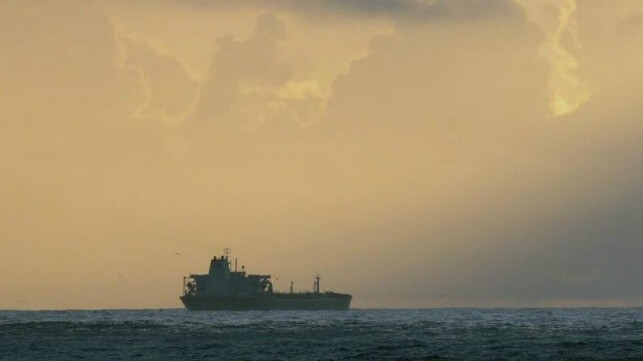EU Details Its First Sanctions Targeting Specific Ships and Sovcomflot

The European Council formalized its fourteenth package of sanctions today and for the first time is listing specific ships targeting both the operations of Sovcomflot and the shadow tanker fleet. A total of 27 vessels were listed, many overlapping with the previous listings by the U.S. and UK, and also included port operations in what is being seen as a coordinated effort to further increase pressure on Russia.
“For the first time, the EU has adopted a measure targeting specific vessels contributing to Russia's warfare against Ukraine, which are subject to a port access ban and ban on provision of services,” the EU Commission wrote in detailing its efforts. “Moreover, the package introduces new listings targeting individuals and entities responsible for actions undermining or threatening the territorial integrity, sovereignty, and independence of Ukraine. A total of 116 additional listings of 69 individuals and 47 entities are subject to asset freezes, and – in the case of individuals – also to travel bans.”
They explained that vessels are being designated for a broad array of reasons such as their support through the transport of military equipment for Russia, the transport of stolen Ukrainian grain, and support in the development of Russia's energy sector. The measure specifically targets tankers that are part of the dark fleet which the EU highlighted for circumventing the Price Cap Coalition's caps while adopting deceptive shipping practices in complete disregard of international standards.
The action specifically names Sovcomflot and its officers. It notes the company’s role as the largest shipping company in the energy sector and includes the CEO, other executives, and other companies from the energy sector. They are included among the businesspersons, propagandists, public figures, members of the army and the judiciary, and others on the listing.
Among the ships being singled out were ones operating under the flags of Gabon, the Cook Islands, Cameroon, and Guinea-Bissau. Several of the ships are directly linked to Sovcomflot while most are operating through third-party entities established in places such as Dubai. The U.S. listed several of these companies which have been broken up and reformulated in efforts to avoid the sanctions.
Included in the listing are some notorious vessels such as the Andromeda Star (115,600 dwt registered in Panama) which in March 2024 was involved in a small accident off Denmark. Reports at the time said the vessel presented false papers to the authorities. Later the vessel was targeted by the Houthi while transiting the Red Sea.
The EU highlights that it did not limit its sanctions just to tankers. For instance, it also includes vessels aiding the efforts through the transport of LNG components or transshipments of LNG. They also listed heavy lift vessels as well as a company operating the Vostochny port that was used to ship weapons and ammunition from North Korea into Russia.
The package is more expansive than anticipated by news outlets and analysts. Last week they had said much of the discussion was centered it seemed on the LNG sector. Reports had said it would ban mostly Russian LNG re-exports from European ports.

that matters most
Get the latest maritime news delivered to your inbox daily.
European Commission President Ursula von der Leyen last Thursday had said "This hard-hitting package will further deny Russia access to key technologies. It will strip Russia of further energy revenues and tackle Putin’s shadow fleet and shadow banking network abroad."
Analysts point out that the U.S. and UK efforts have been effective against individual vessels. Many of the ships named since the U.S. started the sanctions in response to Price Cap violations have been removed from service or had limited operations. Major customers such as India were reported to be reluctant to receive ships on sanctioned vessels for fears of U.S. retaliation.
